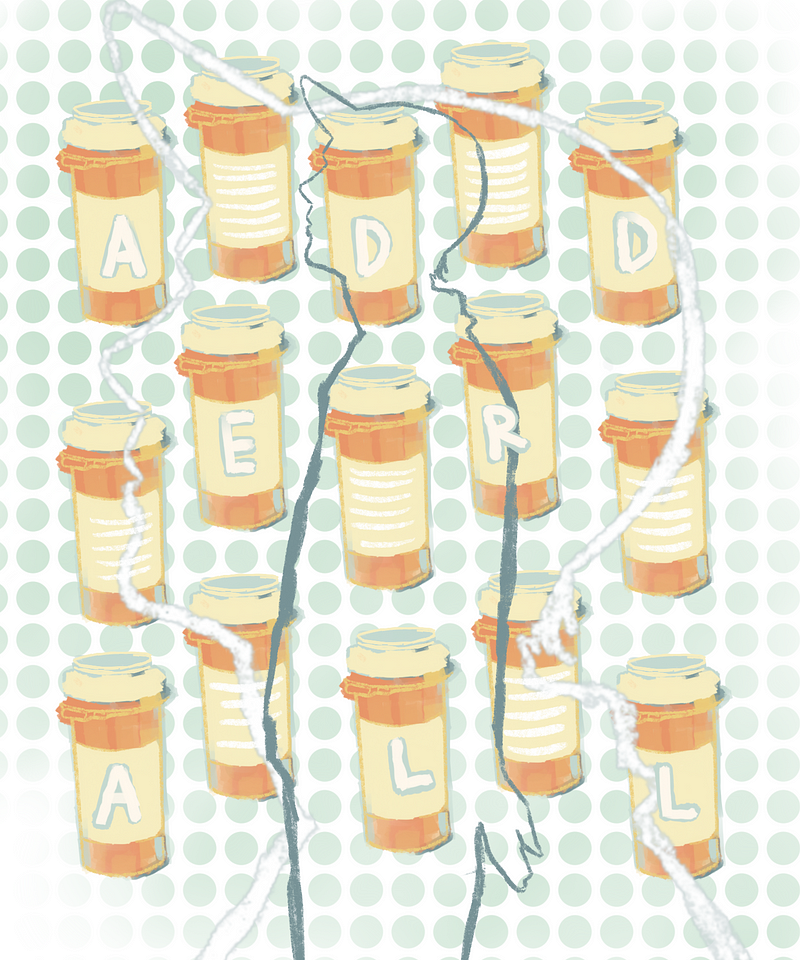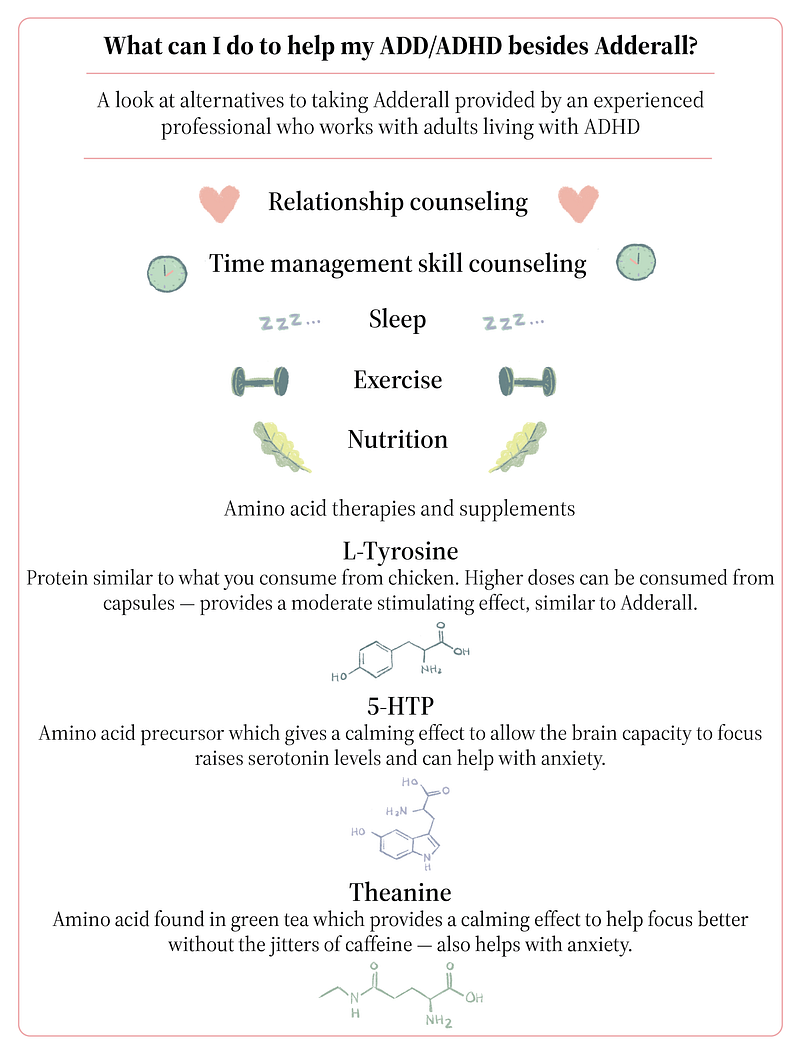Adderall: A Necessary Evil
I was prescribed Adderall to help me focus in school; now I wonder if I have become too reliant on the drug.
Story by Anonymous
Editor’s note: The author has chosen to remain anonymous out of privacy concerns.

I n September 2015, I entered my junior year of high school newly diagnosed with attention deficit disorder (ADD). From reading tests in elementary school to the enhanced rigors of high school, I became well aware of my lack of focus and ability to complete tasks my peers seemingly found effortless.
After months of speaking with my parents, I finally got them on board with the idea I needed help. This was proving to be an inevitable road block, hindering my ability to reach my full potential in school. I recall sitting in my Advanced Placement English classroom the first day taking Adderall and wondering why I didn’t do this earlier. My serotonin levels were at an all-time high; I could finally comprehend readings and I gained a newfound confidence toward my education.
But now, as I near graduation from Western Washington University, I will have to decide if I want to bring Adderall into my adult and professional life. This thought has been lingering in the back of my head for the past few quarters.
According to The American Academy of Pediatrics, individuals with a history of childhood ADD often have rough transitions into adult services. The academy guidelines emphasize the continuity of care, considering the changing needs and abilities of patients and providing transition plans.
I haven’t spoken with my doctor about my current treatment or potential options to help me in my future endeavors.
I write this story stressing about the uncertainties of ADD in my adulthood, but can’t motivate myself to seek guidance. ADD strikes again.
In the beginning stages, the warnings and side effects explained by my doctor went in one ear and out the other. Who could blame me? I was a 16-year-old kid being prescribed a stimulant that made me feel good. I struggled to keep up with my peers and was finally provided with a solution to this problem.
After a couple months, I learned these side effects were no joke.
I dropped 10 pounds, dealt with unusual mood swings and struggled to keep my anxiety under control. It was a learning process in its own right. It took awhile, but I was eventually able to familiarize myself with the drug and its effects on my body. I had to. Adderall was the only thing that made me productive and successful in my schooling.
Early mornings on Adderall are second to none. I recall waking up most mornings at least two hours before class in my sophomore year at Western, excited to get my Subway breakfast at the Viking Union and complete my homework. I’ve never been one to be productive in the evenings coming down from Adderall. Nothing like the sunrise, Subway, a Yerba Mate and a dose of Adderall in the morning.
Prior to the pandemic when we had in-person classes at Western, I would lose my ability to retain information if I forgot to take my Adderall.
Several days out of the year I recall barrelling down the hill from campus to my house on Forest Street — with just 10 minutes to spare in between my classes — just so I wouldn’t have to sit in another lecture hall dumbfounded and useless.
Of course, it would probably be a healthier option to discontinue a dependency on a stimulant. However, I’m going to need all the help I can get as I begin the transition into the professional workplace.
Deciding if I should proceed to take Adderall has generated stress and overthinking about something I can’t control. However, I acknowledge it can be treated more proactively with the guidance of professionals. I made the decision to take action and finally speak with someone who may be able to answer some of my questions.
I reached out to Jupe Johnson, a licensed mental health counselor in Washington state who specializes in working with adults diagnosed with ADD.

“My take on Adderall is that it really depends on the person,” Johnson said. “There are some people who find that a stimulant medication really helps them. However, the thing that I would always tell people is that pills don’t teach skills.”
Henry, a fellow Western student, has experienced similar issues with Adderall. Henry was undiagnosed with ADHD throughout his K-12 education and decided he would finally speak with his doctor about an Adderall prescription after performing poorly at his previous job.
“Without being properly diagnosed in high school, I don’t think I lived up to my full potential,” he said. “I’m not saying I did bad, but let’s just say I had a 3.0 GPA in high school and then in college I had a 3.9 GPA.”
On continuing Adderall in our adulthood, we both agree that our execution of daily tasks depends on the drug. But it would be nice to be unreliant on it for the rest of our lives.
“It’s kind of like a necessary evil for people with ADHD,” he said.
My parents don’t think I need Adderall after college; my dad claims he has been undiagnosed all his life and did alright without it. I believe him and somewhat agree — if he could do it, I can as well. But then again, he was never prescribed a stimulant that solves countless problems.
At this point in my life where I’m working toward a college degree, Adderall is necessary for my success. The idea of adjusting to an alternative form of treatment has plagued my headspace with anxiety beyond my control.
It was relieving to speak with Johnson about his experience counseling adults with ADD. I will carry this conversation over to my new adult care provider and discuss other courses of action.
I am reliant on the positive effects Adderall gives me to combat my ADD, especially as I conclude my college education. In the future, all I can do is initiate communication with the doctors and experts who can help guide me to develop a plan.
ADD has no “right” way of being treated, so the stress I put on myself about continuing Adderall is a waste of my time.
